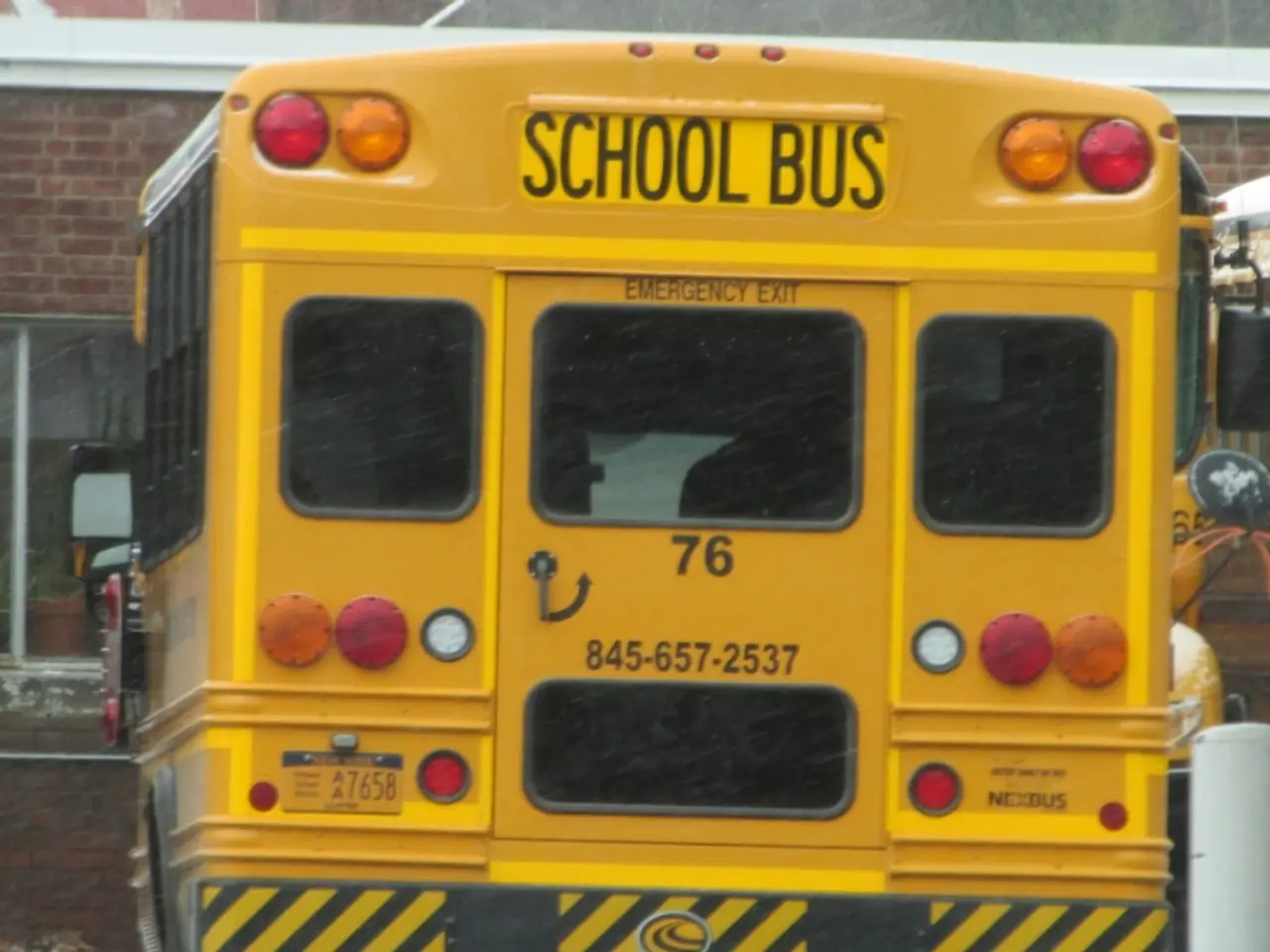"Foreign Parents' Perception of Swedish Schools' Leniency Towards Students"
In the heart of Scandinavia, Swedish schools have been under scrutiny, with a primary focus on addressing perceived issues of discipline and academic standards. Measures such as countrywide smartphone bans have been introduced to improve concentration and social interaction, while debates rage on about finding the perfect balance between digital media and academic rigor.
However, the sudden introduction of grades in the seventh year came as a shock to many students, who were not accustomed to such pressure. The low academic level of students is another common point of criticism raised by respondents.
On the other hand, some foreigners appreciate the emphasis on life skills, group cooperation, and practical subjects like carpentry and cooking in Swedish schools. The accessible, neighborhood school system, where most students attend the school closest to where they live, is another point of praise.
One Indian respondent noted that the maths their child was doing in Class 0 in India is at Class 2 in Sweden, highlighting the relative ease of the Swedish curriculum for some. The Indian lawyer also appreciated the focus on play-based learning and learning from nature in Swedish schools, especially for young children.
Some foreigners have expressed concern about the short school day and the relatively small amount of homework in Swedish schools. This, combined with the low academic level, has led many readers to complain about the failure to challenge gifted students and the lack of meritocracy in Swedish schools.
A British parent argued that competitive sports in schools could potentially mitigate gang-related problems in Sweden, and suggested singing the national anthem in school as a means to teach Swedish values. The Malaysian reader valued Swedish schools' focus on all-around individual development, open discussions, nature, self-reliance, critical thinking, and speaking up.
Not all feedback has been negative. Some readers have welcomed the less pressured learning environment, the space given to students to develop at their own pace, and the less hierarchical atmosphere. An Irish respondent found the after-school division in Swedish schools, which could look after children until parents come home from work, made logistics easier.
However, 14 out of 38 respondents complained about lax control of students, chaotic classrooms, lack of respect for teachers, and the lack of school uniforms. Issues such as students using snus, vapes, energy drinks, and accessing adult sites on school-issued laptops have also been raised.
Despite these criticisms, a British parent who had also worked as a teacher in Sweden noted that children are happier than in the UK, leaving each stage with happy memories. One parent noted less of a pecking order between students in her child's class compared to what was normal in her home country.
From this mixed bag of feedback, it is clear that Swedish schools are a subject of ongoing debate. While they excel in some areas, there are undeniably issues that need addressing. The journey towards improving Swedish schools is one that continues.
Read also:
- Turbine operators in Thuringia now face the task of dismantling underpinnings.
- Finalist Interview for 2025 Sustainability Awards: DS Smith's fiber-based packaging for PET bottles
- Lucrative Business Opportunities in Nigeria: Discover Profitable Enterprises Immediately
- Humanity's Lasting Legacy Could Potentially be Piles of Chicken Remains






